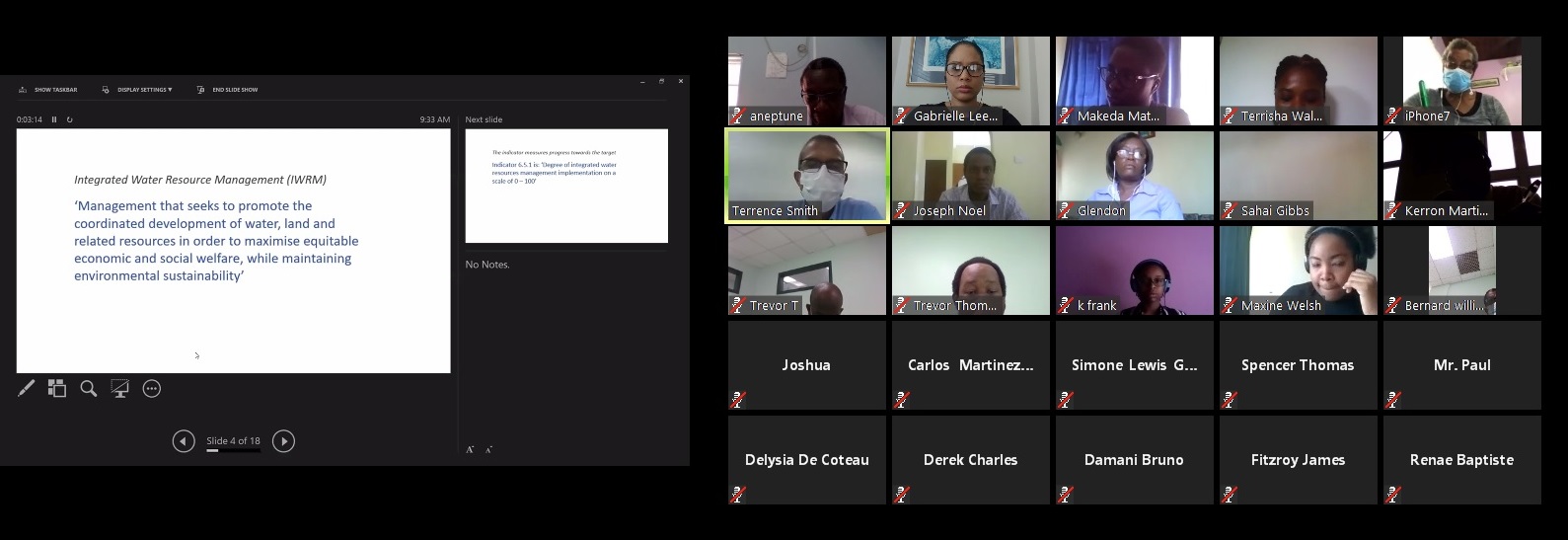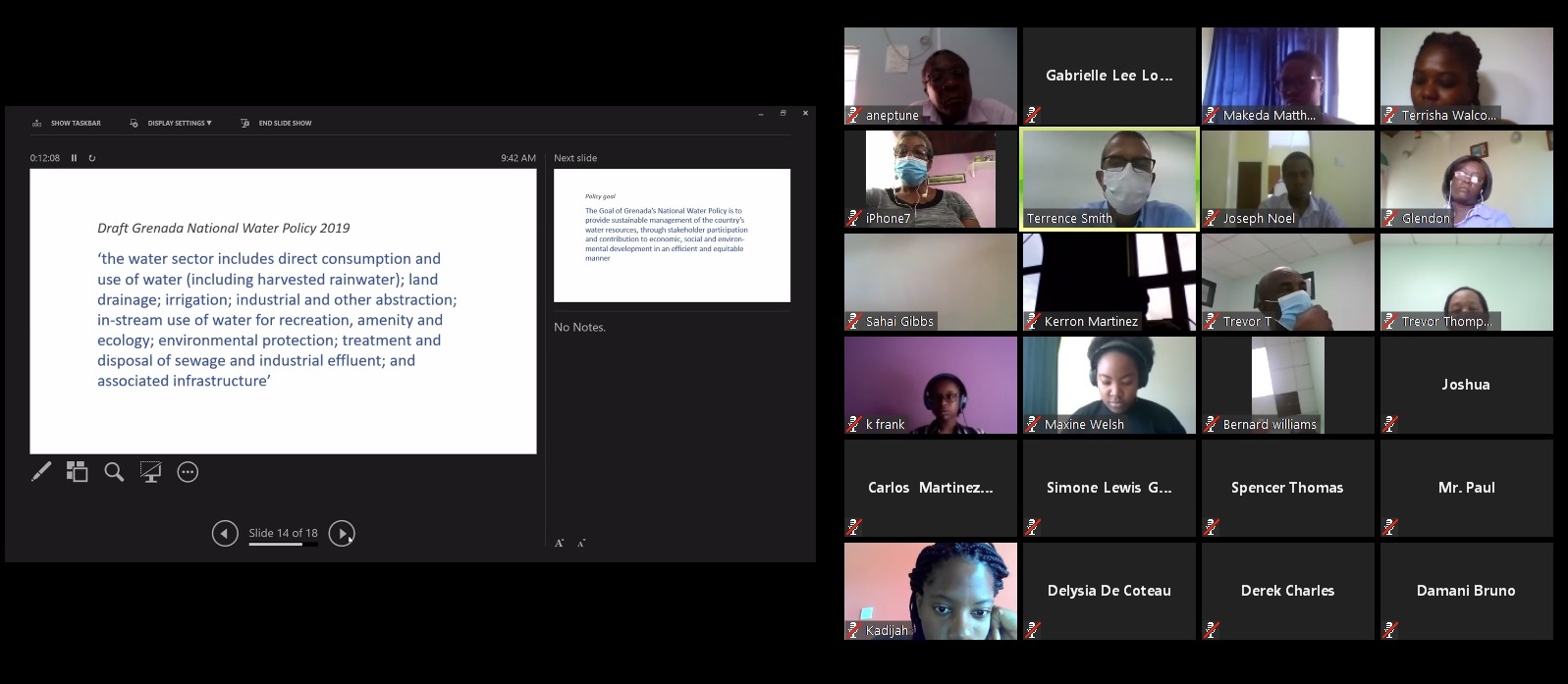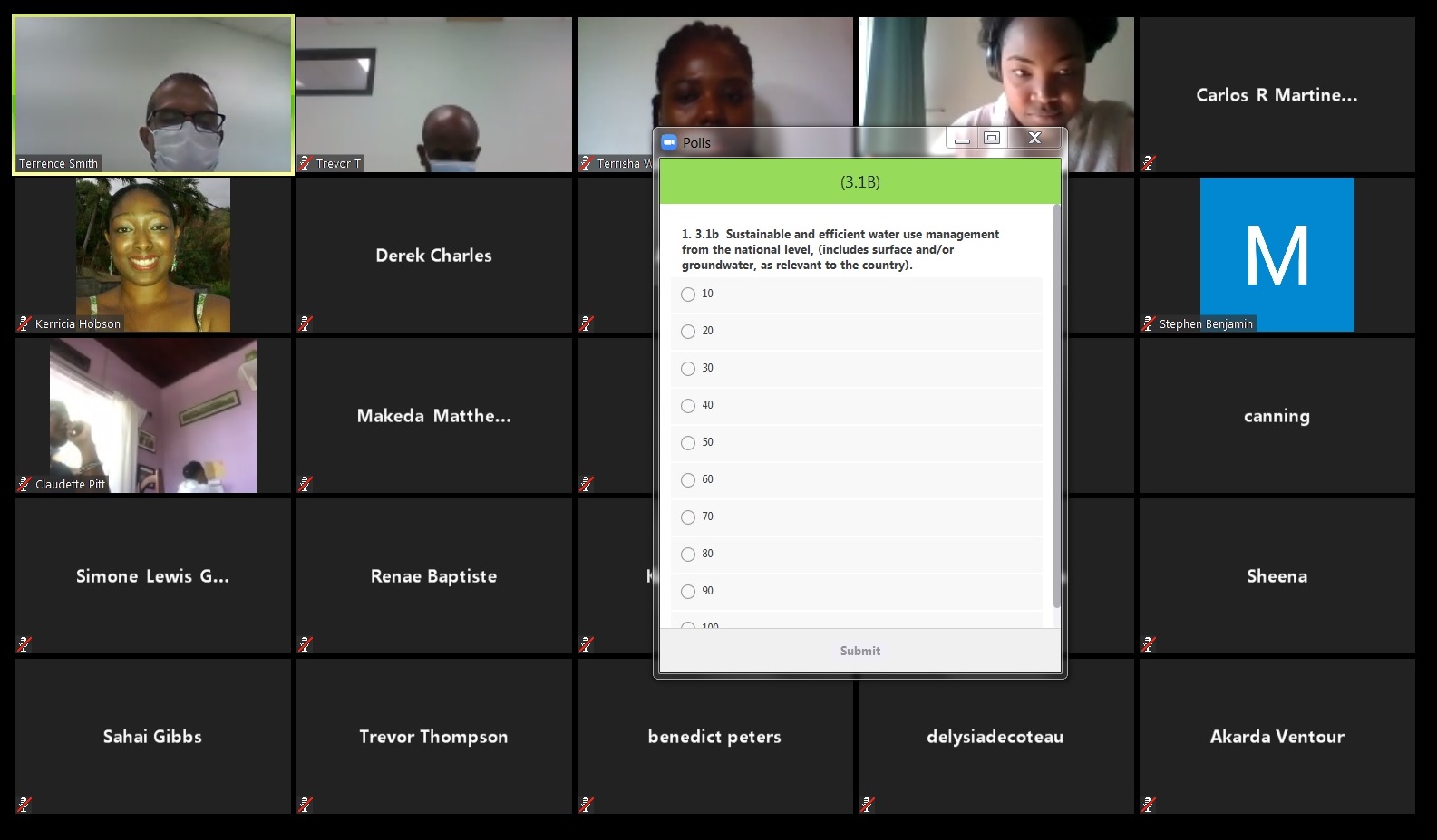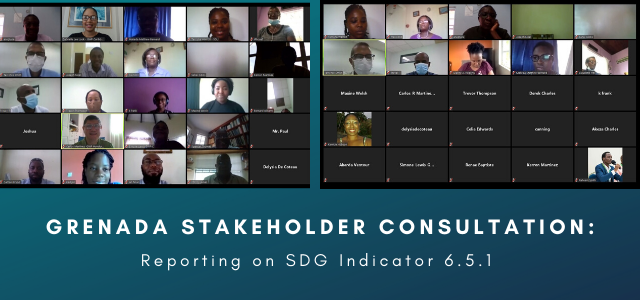The United Nations (UN) has launched a 2020 Data Drive as part of the UN-Water Integrated Monitoring Initiative for Sustainable Development Goal 6 (SDG 6), which aims to ensure water and sanitation for all by 2030. For many countries, there is a lack of data on the various SDG 6 Indicators. The Data Drive therefore seeks to close this gap and allow for more robust analysis.
To support this process, under the SDG 6 IWRM Support Programme the Global Water Partnership (GWP) and its Regional Water Partnerships (RWPs) are assisting the United Nations Environment Programme (UNEP) in its second round of reporting on SDG Indicator 6.5.1 – Degree of Integrated Water Resources Management (IWRM) implementation. UNEP being the custodian agency for the Indicator.
As the Caribbean RWP of the GWP, GWP-C has been supporting the 2020 data collection on SDG 6.5.1 in the Caribbean; making it possible under the SDG 6 IWRM Support Programme for Caribbean countries to host online National Stakeholder Consultations.
Grenada is now the second country in this global process, to host its SDG 6.5.1 Stakeholder Consultation virtually. It did so on May 19th and 21st, 2020 just a few weeks after Trinidad and Tobago who was the first country to do it.
The two-day Grenada Consultation was facilitated by Mr. Terrence Smith, Managing Director of T.P. Smith Engineering Inc. and coordinated by Mr. Trevor Thompson (SDG 6.5.1 Focal Point) of the Ministry of Agriculture and Lands and GWP-C Chair.
Mr. Smith who is the Managing Director of T. P. Smith Engineering, is a Civil/Sanitary Engineer from Grenada. He has worked and contributed tremendously to water, wastewater and environmental management in the country for many years. He was also instrumental in the 2019 revision of Grenada’s National Water Policy which was first developed in 2007.
The Consultation saw the participation of about 30 stakeholders on both days from government ministries and agencies, private sector entities, youth organisations, non-governmental organisations (NGOs), civil society organisations, academic institutions and more.

Mr. Smith established the context of the activity, explaining that “IWRM underpins other water-related targets.” He made clear the importance of participants’ contributions in assessing Grenada’s IWRM progress. In setting the framework for the Consultation, he was also able to provide historical and recent information on Grenada’s National Water Policy (first developed in 2007), its latest revised draft, as well as the Draft Grenada IWRM Plan completed in the first quarter of 2019.

A detailed survey covering various aspects of IWRM, was the tool used for the Consultation (provided by UNEP). Based on participants’ inputs, a consensus on scores for each question, along with a status description and way forward were required. A mixture of plenary discussions and online polls was used in reaching and ensuring consensus on scores amongst stakeholders.

The Consultation allowed for rich dialogue on water management in Grenada, focusing on value for ecosystem services, conflicts, threats and use of policies to guide decision-making. One topic that generated lengthy discussions, was the fact that Grenada’s revised Draft Water Policy completed in February 2019, is still awaiting formal Cabinet approval. However, it was pointed out that though not yet formally adopted, the Revised Draft Water Policy is informing some projects’ development and implementation in the private and public sectors – most notably the project Climate-Resilient Water Sector in Grenada (G-CREWS), funded by the Green Climate Fund, GIZ and the Government of Grenada.
Another area raised at the Consultation was the fact that the institutional responsibility for IWRM implementation in Grenada is shared between the country’s water utility, the National Water and Sewerage Authority (NAWASA) and several other government Departments and agencies. In light of this, it was stated that there should be no separation of responsibility for water resources management and water services provision, because it will result in IWRM implementation becoming fragmented. Stakeholders felt that a key way to address this, would be the establishment of a Water Resources Management Unit (WRMU). According to Mr. Thompson, GWP-C Chair and SDG 6.5.1 Focal Point “Water is a critical resource for Grenada and there is need for an IWRM approach to its management.”
Participants acknowledged that there is a good measure of public participation in water resources matters in the country and some use of the public’s inputs by the relevant authorities, however, it tended to be on an adhoc basis, mainly related to projects and programmes. They stressed the need for the sharing of information and experiences between relevant government authorities to be strengthened.
Discussions related to water and gender arose. One participant drew reference to women being referenced as managing water in homes but stressed the importance of also referring to women in the context of managing water in general, such as their role in providing significant inputs in policy development and implementation. It was however acknowledged that the 2019 Draft Grenada National Water Policy includes gender considerations.
The virtual Consultation provided a good platform for stakeholders from various sectors to reflect on Grenada’s IWRM implementation status. It also enabled the sharing of experiences, perspectives and recommendations. Grenada having successfully completed the Consultation, will submit its SDG 6.5.1. Report well within UNEP’s July 2020 deadline.
GWP-C continues to work with other Caribbean countries in this 2020 SDG 6 Data Drive.
